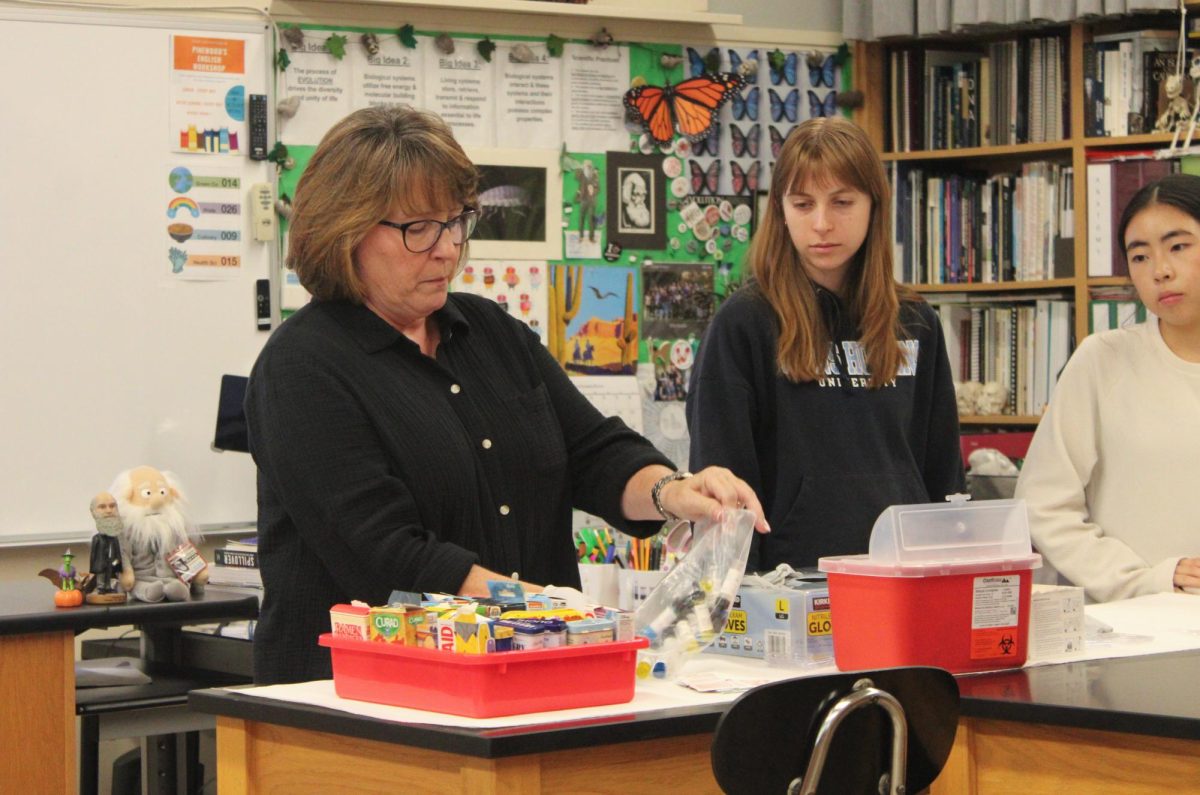Pinewood Upper Campus is introducing two new affinity spaces that align with the annual theme of cultivating a culture of respect. Two of Pinewood’s prevalent communities, Asian-Americans and Jewish Americans, have the opportunity to join groups specially designed to support them.
Affinity spaces only accept members with a specific identity to give that group a place where their background can be embraced. The comfort created in these spaces allows honest conversation between people whose struggles have been misunderstood.
“When you find something in common with somebody, that’s where you start to create that sense of belonging,” Director of Community and Alumni Engagement Anne Wong said.
As the student leader of Pinewood Asian-American Pacific Islander Student Association, senior Sophia Cheng aims to empower the Asian-American and Pacific Islander population at Pinewood. The PAAPISA members, who gathered for the first meeting on Sept. 25, plan to build belonging for underrepresented Asian-American and Pacific Islander communities through bonding events, volunteer work, outsider education, and charity donations.
“There’s a lot more people that I can get to know in my own personal sub-community,” Learning and Engagement Director of PAAPISA, junior Mei Miyahara, said.
Being in a management position, Miyahara is looking forward to running PAAPISA’s fundraising activities, and as an Asian-American, she feels positive about the effect the club will have on other students searching for people similar to them.
Meanwhile, senior Jake Kleiman is still working with Pinewood faculty to approve a Pinewood Jewish Student Union. He hopes it will become a pathway to working with the administration to represent Jewish beliefs on campus. Kleiman explained that despite the large population of Jewish students at Pinewood, few Jewish holidays are currently recognized, and few Jewish students are aware of this cultural commonality they share with their classmates.
“I think the Jewish Student Union will do a good job of making it known that there are Jewish students everywhere,” Kleiman said.
Though student leaders see a need for affinity groups, some parents and students do not.
“The Pinewood community today really values one Pinewood community,”Assistant Head of Upper Campus Haley Hemm said. “There may have been misunderstandings that [affinity spaces] would create more divisiveness.”
Hemm shared that the separation affinity spaces promote seems to threaten the common perception of Pinewood’s single blended community. However, Hemm said the faculty believes they actually inspire increased togetherness.
“By . . . having affinity spaces, students can build that self respect to not only respect their identity groups, but then be able to respect other identity groups,” Hemm said.
Hemm explained that the incorporation of discussion spaces for minorities will create conversations between outsiders about why certain experiences require reassurance. This will lead the campus to value a mixture of unique perspectives




